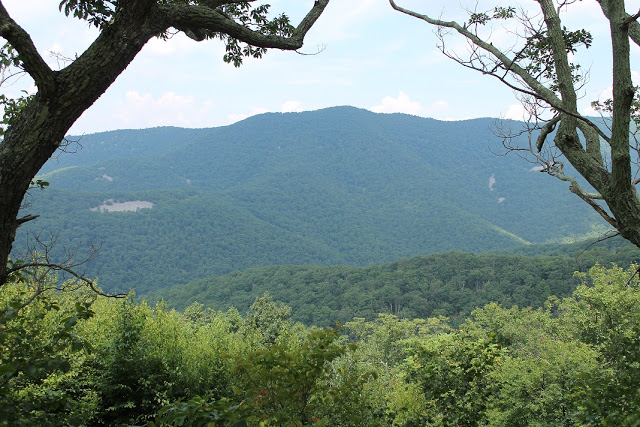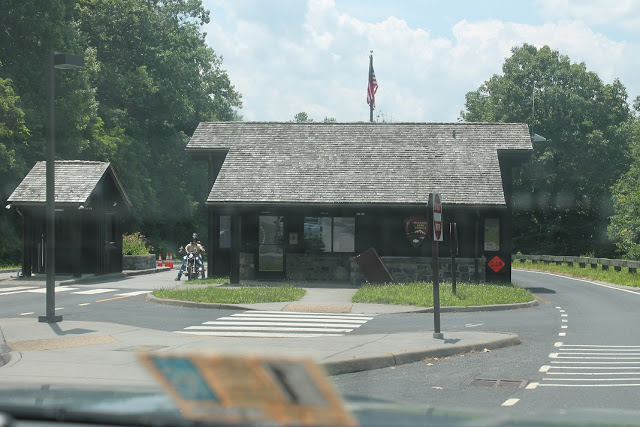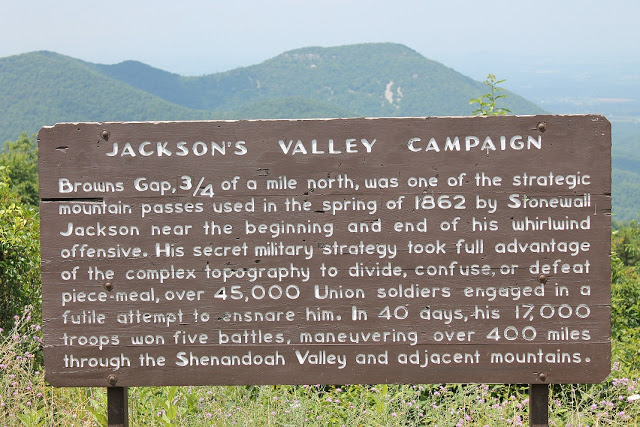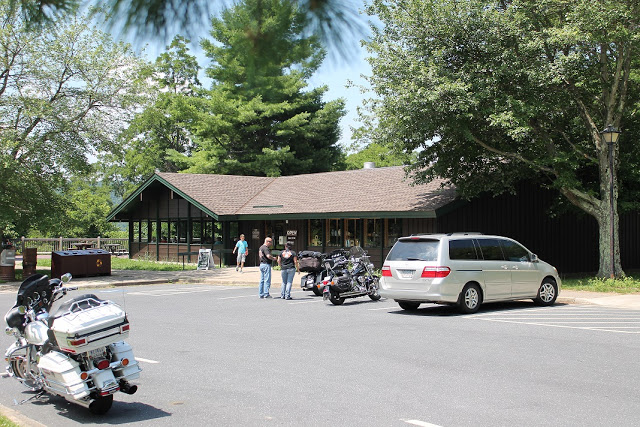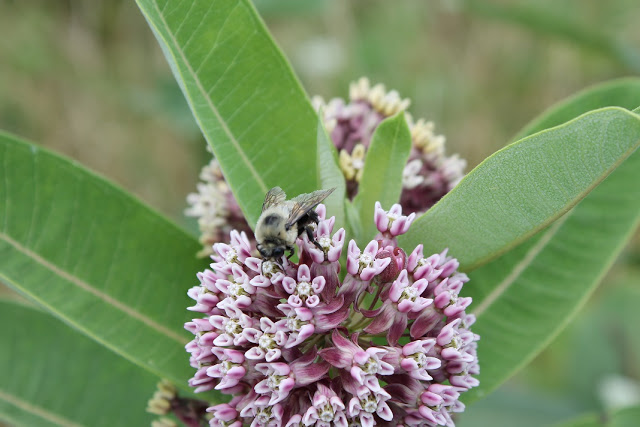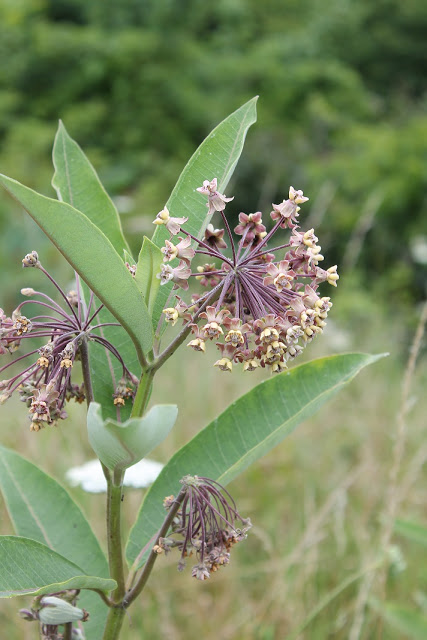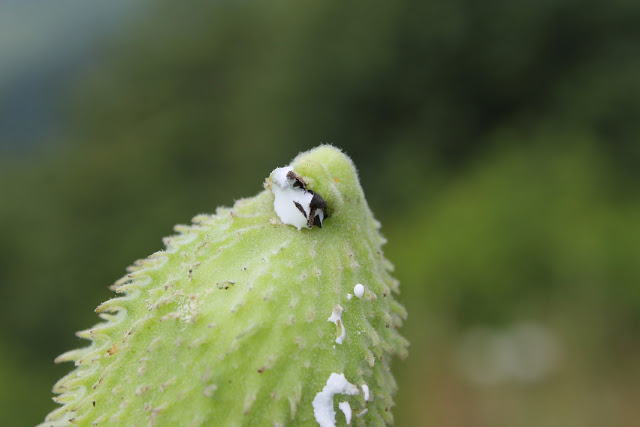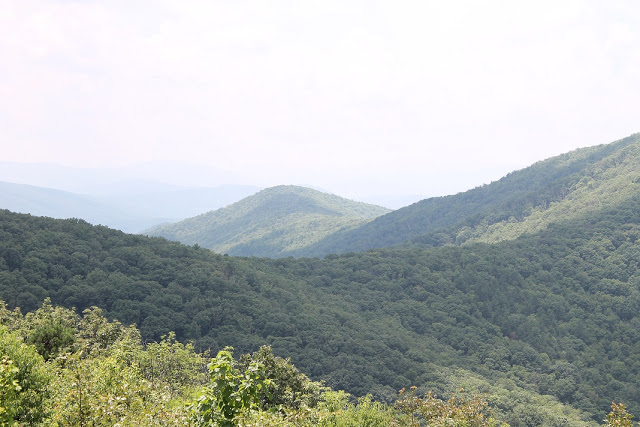Just 13 miles from the Fenton Inn the Blue Ridge Parkway ends
at Interstate 64. Heading north across
the bridge, the road now becomes Skyline Drive and continues to wind through
the mountains.
at Interstate 64. Heading north across
the bridge, the road now becomes Skyline Drive and continues to wind through
the mountains.
Here we are at the south entrance to Skyline Drive. Unlike the Blue Ridge Parkway there is a
nominal fee for entry, per car. Seniors
and those with National Park passes can get in for reduced or no charge.
nominal fee for entry, per car. Seniors
and those with National Park passes can get in for reduced or no charge.
The sign explains the military importance of the mountain
passes during the civil war. Following
the mountains north, there are a number of battle fields easily reached from
Interstate 81, including New Market Battlefield near Luray, Va.
passes during the civil war. Following
the mountains north, there are a number of battle fields easily reached from
Interstate 81, including New Market Battlefield near Luray, Va.
We stopped at a store/restaurant near Loft Mountain. It is a basic sandwich and French fries kind
of place, but they did have soft-serve ice cream cones that the kids enjoyed
after a short hike.
of place, but they did have soft-serve ice cream cones that the kids enjoyed
after a short hike.
Milkweed blooms with a bee having a snack.
Here is a milkweed pod with the latex based sap that
resembles milk. While the plant is toxic
to many animals, the Monarch butterfly caterpillar eats this plants leaves for
breakfast lunch and dinner. The milk
weed grows in many roadside meadows in the mountains but is becoming more rare
in suburban area due to mowing. As a
result, these little meadows are key to the long term survival of the Monarch
butterfly. While they do migrate from
Mexico to Canada, this migration often takes several generations, thus
requiring the milkweed spots along the migration path to allow the sensitive life cycle of the caterpillars to keep the migration going. Any break in the migratory path might be the
end of these majestic butterflies. We
saw no caterpillars, and while we found several adult butterflies, getting a picture
proved nearly impossible. But do not
despair, since you can spot a Monarch butterfly here at the Fenton Inn. One of
the protected milkweed areas is Reeds Gap that is only half a mile from the Inn.
resembles milk. While the plant is toxic
to many animals, the Monarch butterfly caterpillar eats this plants leaves for
breakfast lunch and dinner. The milk
weed grows in many roadside meadows in the mountains but is becoming more rare
in suburban area due to mowing. As a
result, these little meadows are key to the long term survival of the Monarch
butterfly. While they do migrate from
Mexico to Canada, this migration often takes several generations, thus
requiring the milkweed spots along the migration path to allow the sensitive life cycle of the caterpillars to keep the migration going. Any break in the migratory path might be the
end of these majestic butterflies. We
saw no caterpillars, and while we found several adult butterflies, getting a picture
proved nearly impossible. But do not
despair, since you can spot a Monarch butterfly here at the Fenton Inn. One of
the protected milkweed areas is Reeds Gap that is only half a mile from the Inn.
A view from a scenic pull over.


